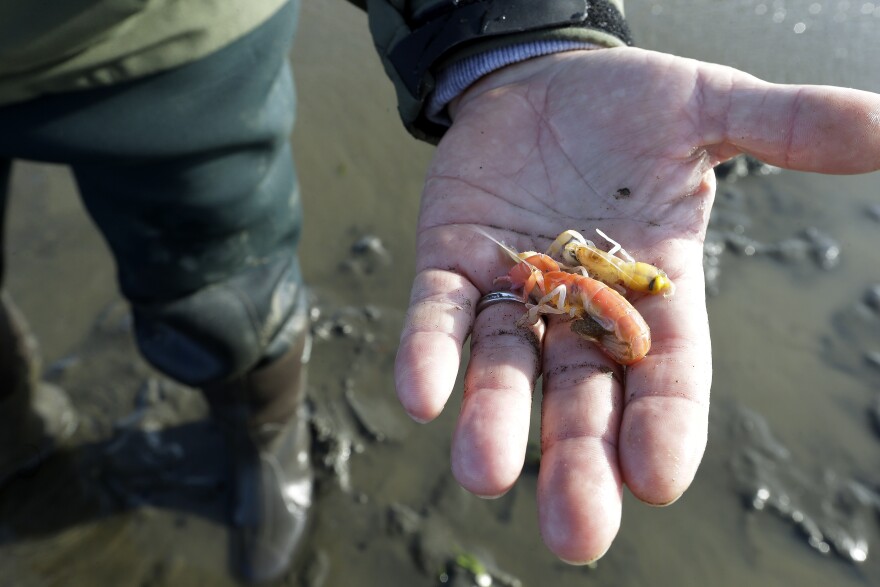Oyster growers want to force the state Department of Ecology to allow the use of pesticides in Willapa Bay and Grays Harbor. A bill before the state Legislature would require the agency to grant permits to control burrowing shrimp. It also would transfer oversight and regulation of the pesticides to the state Department of Agriculture.
Ecology rejected the permits for use of a controversial neurotoxin called imidacloprid last April, saying new science showed too much risk. Imidacloprid is widely used in land-based agriculture, but not in aquaculture and is part of a class of chemicals called neonicotinoids, which have been linked to bee colony collapse. It was recently banned in the European Union.
Oyster growers appealed Ecology’s decision. A hearing before the state pollution control board is set for this fall. But the growers say they need to spray this summer.
BUSINESSES 'SINK IN THE MUD'
Several of the growers testified in favor of the bill Tuesday, saying in just the last three years individual companies have lost as much as 60 percent of their acreage to the shrimp, which burrow beneath the oysters and can turn commercial beds into quicksand, suffocating the valuable shellfish. The industry has become the No. 1 sector for the rural county, with several family-built operations now employing thousands of people and exporting their products to other markets in the U.S., as well as overseas.
Ken Wiegardt, president of the Willapa Grays Harbor Oyster Growers Association, said growers are asking to spray on less than one percent (0.07 percent) of their tidelands. And it would be a temporary control measure, if another remedy could be found.
"Many groups, such as Washington Department of Resources, are diligently working to find a solution to this dire situation,” Wiegardt said. “But in the meantime, I’m watching almost 150 years of my family’s history sink in the mud, right before my eyes."
NEUROTOXIN IN THE WATER
Opponents of the bill voiced their concerns about the potential effects of imidacloprid spreading through the water and the food chain, hurting everything from crabs and salmon to birds and orca whales.
Laura Hendricks, with the Coalition to Protect Puget Sound, said the reason the native shrimp are now infesting oyster beds is because of decades of pesticide use that cleared the sand of other lifeforms. She cited a statistic from a new book about the industry, called "Toxic Pearl," that says Carbaryl — recently phased out by the state — has killed more than 10 million aquatic animals per year in Willapa Bay and Grays Harbor. Imidacloprid was introduced as a replacement for Carbaryl, but remains controversial.
“We have been hearing from scientists all over the country, which is embarrassing,” Hendricks said. “I’ve had scientists call me and say, ‘Laura, you’re supposed to be a green state. Inslee’s supposed to be a green governor. What are you doing, where a state is thinking of applying pesticides in the water that says right on the label: do not apply in water.’”
CONTROVERSY CONTINUES
The growers insist the use of imidacloprid would be safe and that they are not trying to obliterate the native shrimp, just control them so they don't lose their industry. They argue Ecology’s rejection of their permit was a political move.
Others say overturning Ecology's decision and transferring the agency’s authority would set a bad precedent.
The bill is scheduled for an executive session of the Senate Committee on Agriculture, Water, Natural Resources & Parks on Thursday afternoon.
The growers' appeal of Ecology's decision is set to go before the state’s Pollution Control Hearings Board for two weeks starting Sept. 9.







